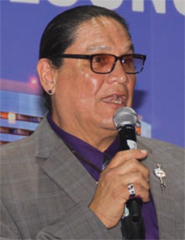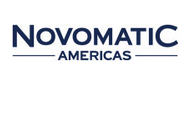
The National Indian Gaming Association was formed in 1985 by a visionary group of tribal leaders determined to bring the voice of Indian Country and Indian gaming to Washington, D.C.
Today, NIGA continues to build on their mission to educate federal policymakers. It is committed to protect and preserve the ability of Indian tribes to generate governmental revenue through gaming while strengthening tribal governments and tribal sovereignty.
In over four decades—before and after passage of the Indian Gaming Regulatory Act (IGRA)—Indian gaming has responsibly grown into the largest segment of the gaming industry in North America.
In 2018, 241 tribal government owned-and-operated gaming entities in 29 states generated $33.7 billion in gross gaming revenue—a 4.1 percent increase over 2017. Tribal operations added an additional $5.3 billion in ancillary revenues (hotel/entertainment), to bring our gross revenue total to $39 billion.
Indian gaming revenues have helped tribal governments transform native communities, improving essential health, education, public safety and housing services, and providing critical infrastructure for reservation residents.
Our industry serves as the anchor for employment and economic development for native and nearby communities. Indian gaming is the 12th largest private employer in the United States, generating 308,712 direct jobs. An additional 458,232 indirect jobs rely on Indian gaming, bringing our total employment figure to 766,944 American jobs.
Tribal leaders realize that none of these benefits would be possible without a strong regulatory system to protect Indian gaming revenues and preserve the integrity of our operations. While tribal governments take on the primary day-to-day role of regulating Indian gaming operations, IGRA requires coordination and cooperation with the federal and state governments to make this comprehensive regulatory system work.
In 2018, tribes invested $457 million on regulation. This figure includes funding for state-of-the-art surveillance and security equipment, IT and cybersecurity systems, and more than 4,000 regulatory and security professionals.
Over the past several decades, Indian gaming regulators have gained significant expertise. Early on, many tribal regulators came directly from federal and state gaming regulatory bodies, law enforcement and judicial systems. Many others had backgrounds in commercial gaming regulation, banking and accounting. Today, however, an increasing number of Indian gaming regulators are homegrown, learning directly from these experts.
Tribal leaders are also investing in educational and job opportunities for our native youth, far beyond careers in Indian gaming. Tribal leaders know that education is the key to securing our future and to revitalizing reservation economies.
Today, thanks in part to Indian gaming, tribal governments are educating a generation of new native leaders. In the past, we relied on outsiders to serve as our teachers, police officers, doctors, lawyers and other professionals. But today, these professionals are more likely to come from Indian Country. Native youth are going out to get their educations, and more and more are returning to serve their communities.
As noted at the onset, NIGA’s primary mission is to bring the voice of Indian Country and Indian gaming to Washington, D.C. Last month, NIGA held our 20th annual Winter Legislative Summit.
NIGA’s Winter and Summer Legislative Summits and our constant education efforts have worked to build a substantial core of members of Congress, committed to improving federal laws to respect the governmental status of Indian tribes, and meeting the solemn treaty and trust obligations of the United States to Indian Country.
Our legislative summits provide tribal leaders with an opportunity to hear directly from federal lawmakers and top agency officials about pending legislation and federal agency proposals. At the same time, these officials hear directly from Indian Country about our policy priorities.
The 2020 Winter Legislative Summit brought together panels that focused on the need to restore balance to IGRA’s tribal-state compacting process, the need to amend the tax code to provide tribes with access to capital on par with other governments, the longstanding need to protect Indian trust lands and improve the land-into-trust process, and other critical issues facing native nations in the 116th Congress.
The future policy direction of Indian Country will undoubtedly be influenced by the results of the upcoming election. To meet our policy goals, we must vet and educate candidates at all levels of government who recognize and understand Indian Country, respect the status of Indian tribes as separate sovereigns under the U.S. Constitution, and commit to upholding the federal government’s solemn treaty and trust obligations.
The November 3, 2020 election will have wide-ranging impacts and consequences on our efforts to advance native communities nationwide.
In Indian Country, exercising our voting rights not only serves to advance our future policy goals, but it also serves as an act of honoring those who came before us, and honoring the sacrifices they made to protect tribal sovereignty and our way of life for future generations.
Elections have consequences. We know the dire consequences of being shut out of the voting process. Throughout the 1800s, the United States implemented policies that stole native homelands, and sought to erase native culture by forcing our children into government-run boarding schools, where they were forbidden from speaking their native language and practicing their religion.
The United States approved and implemented these policies, all while Native Americans had no voice in the debate and no right to vote. The impacts of these policies continue to haunt our communities to this day.
For these reasons, NIGA launched the “My Vote WILL Count” campaign in September 2019, to ensure that all Native Americans heed the call and exercise their voting rights.
NIGA’s “My Vote WILL Count” campaign partners our member tribes with national and regional tribal organizations to plan events to educate, empower and encourage all Native Americans to register, vote and commit to getting others to the polls in 2020. We are recruiting young warriors to act as ambassadors to reach out in their communities and schools, and to plan events to help our native youth heed the call to vote. Our young people are the key to unlocking the full potential of Indian Country’s vote.
Native people have consistently shown that their votes hold power to make a difference. It is our responsibility to educate native communities nationwide about the importance of their vote and to believe, “My Vote WILL Count.”
NIGA is a nonpartisan organization, and the native vote is likewise non-partisan. Our policy priorities cross all party lines. At their core, tribal governments fight for local control, freedom from state government infringement on tribal sovereignty, decreased impacts from federal actions, and parity and respect as governments for purposes of all federal laws and programs. At the same time, tribes demand that the U.S. fully fund and meet solemn treaty and trust obligations.
Regardless of your party affiliation, we urge every person living, working or doing business in Indian Country to educate and elect candidates for all offices who will fight to achieve these policy goals.
History has shown that our power at the polls will determine who will represent our interest in the halls of Congress, the White House and in local, city, county and state governments. Now more than ever, it must be our pledge to do our part by igniting the flame of power by registering and voting in 2020. We can and will make a difference for generations to come.


















